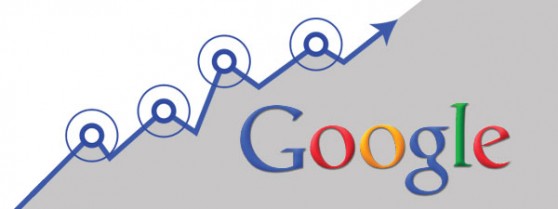Recently we posted a summary of SEO agency Northcutt’s excellent review of Google ranking factors which aimed to debunk or confirm the many actions and tactics that boost the ranking of your website in search engine results pages (SERPS). Our original blog post is here – Google Ranking Factors for SEO by Northcutt – exposing the myths, concrete factors and the dubious. There are now 10 extra ranking factors.
The blog post created quite a stir and provoked much useful debate amongst SEO professionals and this has resulted in the original list of 260 ranking factors being expanded to 270. Just to be clear ranking factors influence, positively or negatively, on the visibility of a website on search engines. Optimise the right factors for your website and you are likely to get better quality and increased visitor traffic through a higher position on Google for relevant keyword searches.

The original analysis assessed 260 ranking factors that are frequently presented as important for search engine position but took a more scientific approach, seeking evidence based on statements by Google, research and other sources to either confirm or debunk a particular belief. In reality the analysis could not be that black and white with a spectrum of labels to indicate the credibility of the evidence: Probable, Likely, Maybe, Iffy and Myth.
For example it’s often important to have a good internal link structure with the link text describing what it is linking to – so called ‘Anchor text’. For example lots of links to other pages that simple say ‘Click here’ will not help improve your website ranking, however if the links describe the page such as web design, contact us etc will help search engines get a more accurate view of your website content and they will deem it as following good web design practice and by providing a good user experience.
Internal Link Anchor Text
The anchor text of a link tells the user where that link leads. It’s an important component of navigation within your website, and when not abused, helps to establish the relevance of a particular piece of content over vague alternatives such as “click here”.
Source(s): Google’s SEO Starter Guide
Compare and contrast the sometimes repeated (not here) idea that Google AdWords campaigns boost organic search engine positions – this is definitely a myth:
Use AdWords
SEO paranoia seems to prevent this myth from dying. There are no credible studies that we have encountered that suggest AdWords will improve rankings in any way. AdWords influencing organic rankings runs counter to Google’s core philosophies, and nobody is more vigilant about speaking out against this myth more than Google.
Source(s): Matt Cutts
That said, there is some evidence that the increased traffic and improved brand awareness may help improve the click through rate for organic results but this is a very minor positive influence – see our earlier blog post SEO conspiracy theories debunked or confirmed
The 10 extra ranking factors
Here are are new ranking factors which includes links to the relevant section of the expanded Northcutt Google ranking factors article:
- All nofollow – Iffy
- Site Lacks Theme – Likely
- Weak SSL Ciphers – Maybe
- Links from Iframes – Likely
- Reconsideration Requests – Likely
- Crawl Budget – Concrete
- Hreflang – Likely
- X-Robots-Tag – Likely
- GWT URL Parameters – Concrete
- Android Pay – Iffy
Get in touch with Dinesh on 07941 686113 or contact us for advice about search engine optimisation and the extra ranking factors for search engine visibility. See the original article by Northcutt here: review of Google ranking factors






